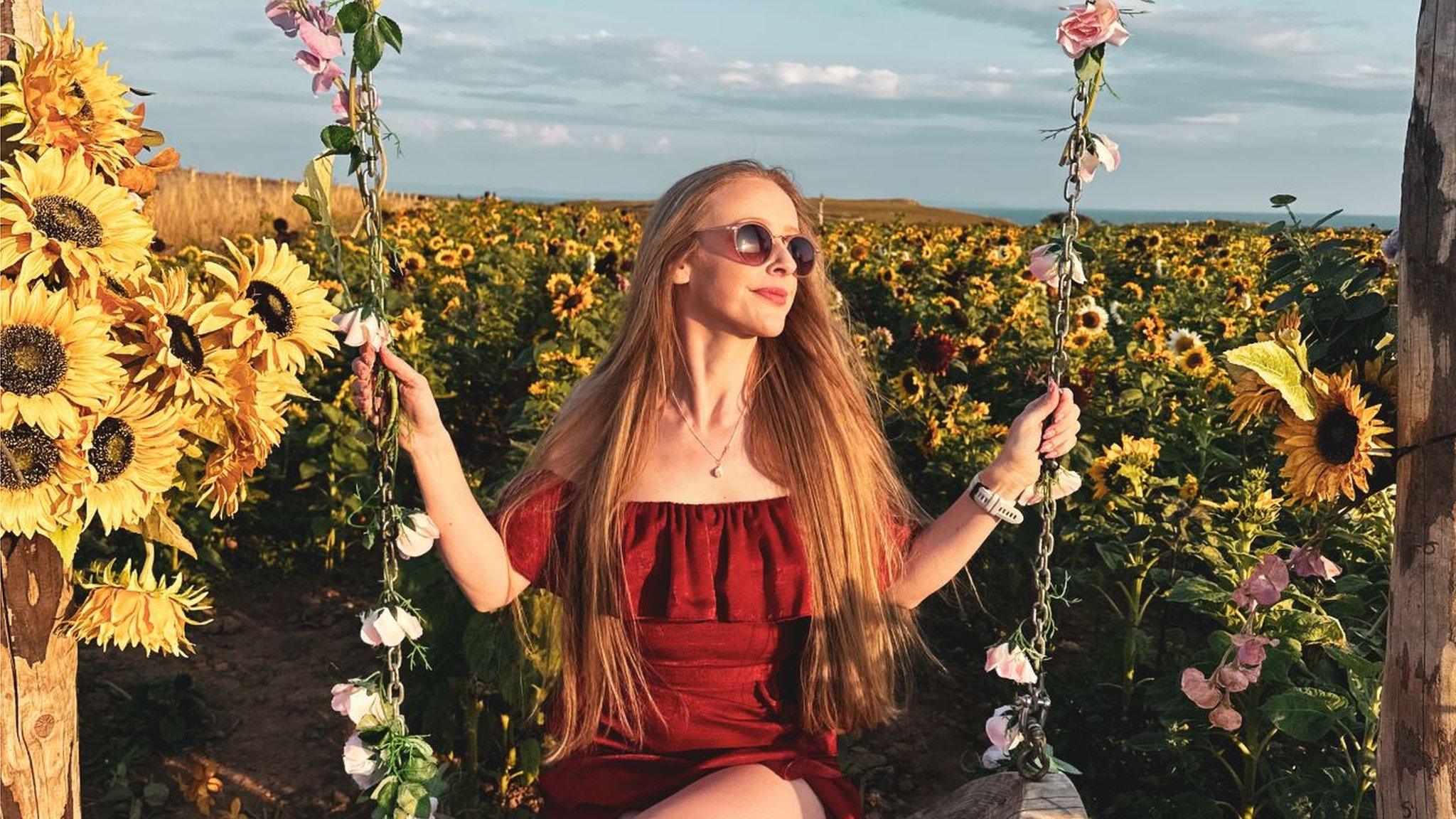Selfie takers forced pony off cliff in Gower, farmer says
- Published
The ponies have grazed the cliffs for generations
People taking selfies with ponies at a tourist hotspot caused a new-born foal to fall to its death from a cliff, a farmer has said.
Visitors are now being warned not to touch the ponies in Rhossili, Swansea.
The animals have grazed the cliffs for generations while being cared for by the family of farmer Nicky Beynon.
But after three of his ponies died last year in collisions with cars, and their ongoing harassment by visitors, he is now questioning their future.
The National Trust conservation charity has asked visitors to stick to the countryside code - the guidelines designed to help the public enjoy outside spaces.
Mr Beynon, 60, who farms in Llangennith and Rhossili, said his gypsy cob ponies are overwhelmed by people trying to touch them and take selfies up close.
"They all want to take a photograph, but they don't realise what they're doing - the amount of stress they're putting on the animal," Mr Beynon said.
He said the foal's death happened in April.
Its mother gave birth "a couple-hundred yards" from the cliff edge, and Mr Beynon said people were crowding them "trying to take photographs and forced her closer and closer to the edge".
"All of a sudden the new-born is staggering to its feet, trying to learn how to stand up, and trips over the edge," he said.
"The mare who lost her foal over the cliff, she's quite a sharp sort of sensitive mare. The foal had gone over about half an hour before I found her and she was just going ballistic.
"She knew the foal had just vanished."
The farmer said he had to take all his mares home after the incident so they could foal safely.
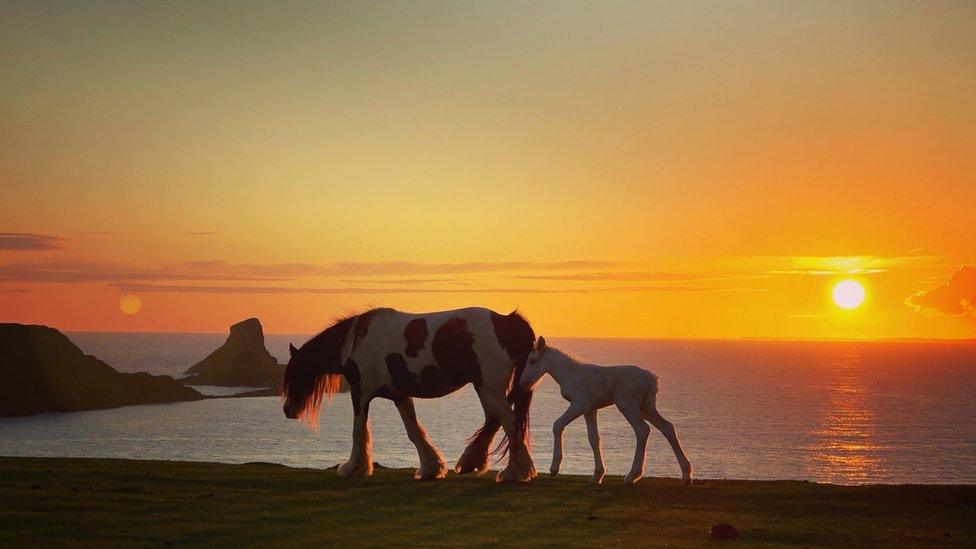
Photographers have been asked to stand away from the ponies to give them space
In 2022 Mr Beynon was forced to remove the ponies from the headland because someone had flown a drone "about 10ft above her".
The pony "couldn't make out where this noise was coming from and she was sort of spinning around," he said.
Mr Beynon said the man controlling the drone could not grasp the stress he was putting the pony under.
"There's people flying drones there every day, and these things are capable of filming from hundreds of feet away, the same thing with zoom lenses," he said. "There's no need to touch the horse or get so close."
Mr Beynon has already had to stop grazing sheep on the headland after a series of dog attacks, including a sheep being eaten alive by someone's pet alsatian.
Louise Church, 47, said she visits the area regularly from her home in Swansea, and has intervened several times when people have been scaring the ponies.
She said in April, just before the foal death, she stopped a man who was chasing a pony to get a photo.
"They're not domestic. They're wild animals," she said.
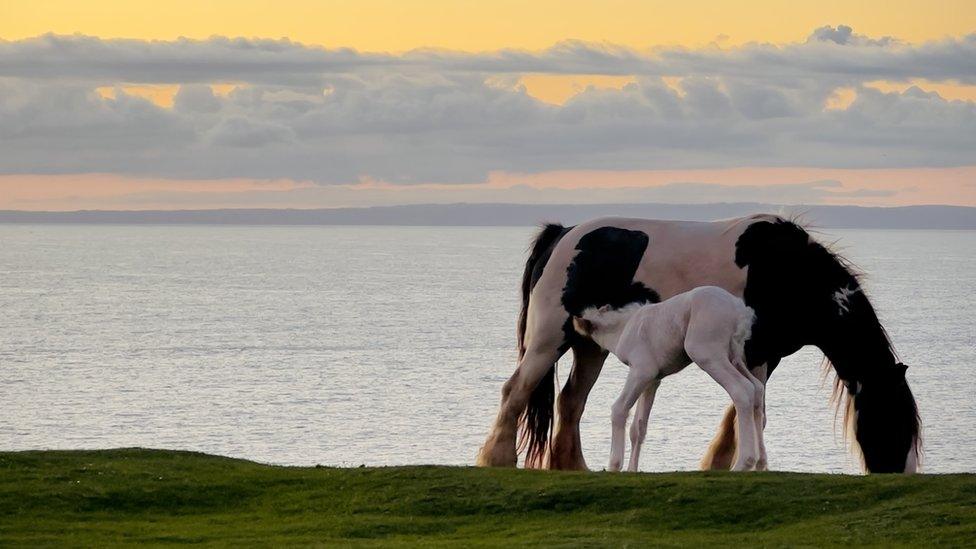
The farmer says people should use the zoom function on their cameras to take photos instead of getting too close
And just four weeks ago when she was walking her dog she said she saw a family with a three-year-old girl who had walked up to the back legs of a horse and was stroking its legs.
"The parents were oblivious," Ms Church said.
"If the horse had kicked her she would have been in serious trouble."
The National Coastwatch Institution, based on the cliff, said it is having to issue warnings on a daily basis for people to stay back from the ponies.
In a post on social media, the organisation said: "It was only recently we had to transport a young lady up to the car park after she had been kicked by a stallion near our hut. We did what we could, first aid-wise, but she found walking difficult.
National Trust Cymru, Gower said the area "is home to a variety of special wildlife and livestock that grazes freely across the common land and meadows".
It asked everyone to keep to the countryside code and observe its guidelines.
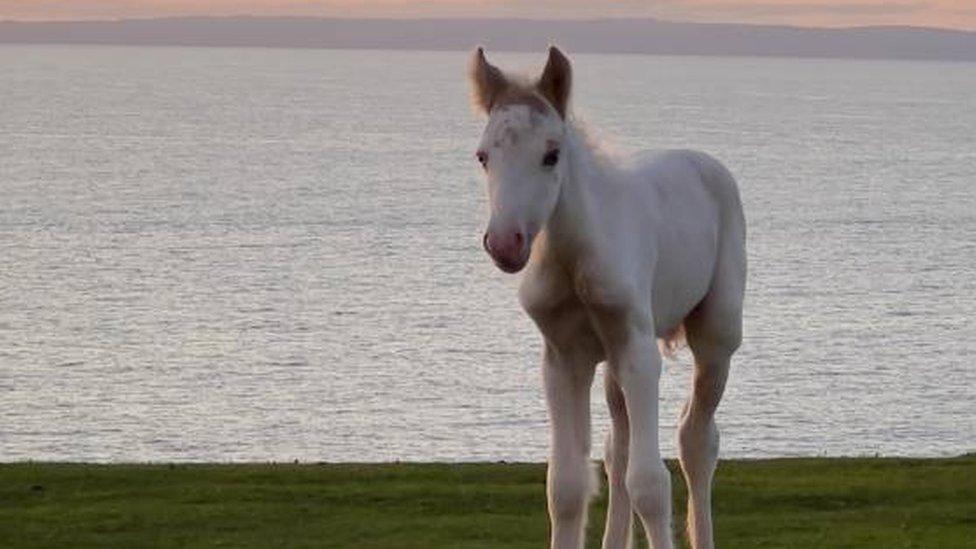
The ponies are wild animals, not domestic horses, said Louise Church
What is the Countryside Code?
The Countryside Code is a set of guidelines, external designed to help the public enjoy outside spaces while protecting nature and the livelihoods of landowners.
Among these guidelines are:
Give wild animals, livestock and horses plenty of space. Their behaviour can be unpredictable, especially when they are with their young and you could get hurt
Do not feed livestock, horses or wild animals as it can cause them harm
Leave gates and property as you find them or follow instructions on signs
Always keep dogs under control and in sight

If you'd like to share your experiences in relation to the issues raised in this story you can get in touch by emailing haveyoursay@bbc.co.uk, external.
Please include a contact number if you are willing to speak to a BBC journalist. You can also get in touch in the following ways:
WhatsApp: +44 7756 165803
Tweet: @BBC_HaveYourSay, external
Please read our terms & conditions and privacy policy
If you are reading this page and can't see the form you will need to visit the mobile version of the BBC website to submit your question or comment or you can email us at HaveYourSay@bbc.co.uk, external. Please include your name, age and location with any submission.
- Published19 May 2023
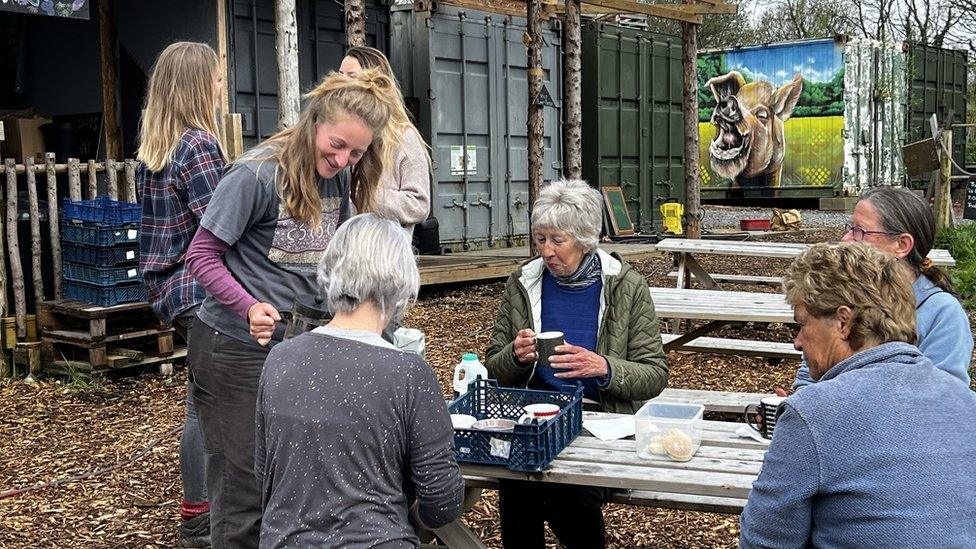
- Published1 June 2023
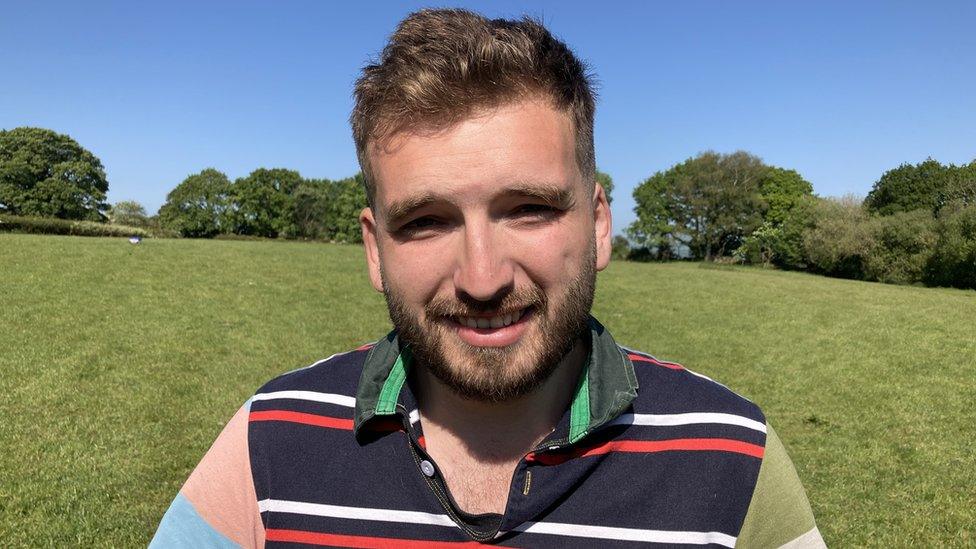
- Published1 April 2021
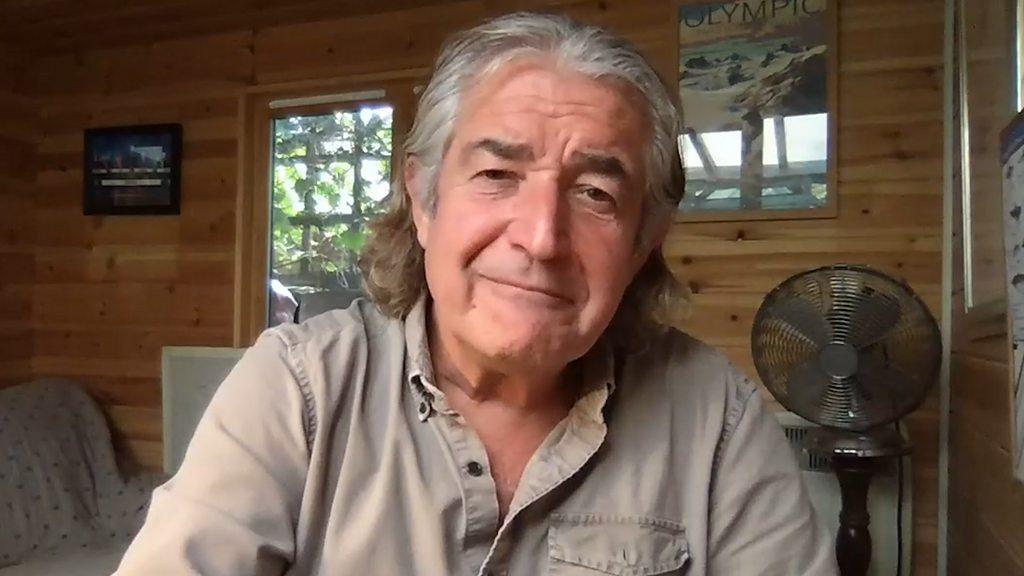
- Published20 August 2023
